Search Results
Showing results 281 to 300 of 648

Living Clocks
Source Institutions
In this activity about daily rhythms (on page 17 of the PDF), learners will explore circadian patterns in humans, animals and plants.
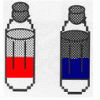
Oil and Soap
Source Institutions
Learners investigate the properties of the liquids in two bottles. One contains layers of oil and water, and one contains oil, water, and soap.
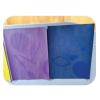
DIY Sunprints
Source Institutions
In this activity, learners will see how UV light affects colors over time by making their own sunprint on construction paper.
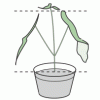
Do Plants Need Light?
Source Institutions
In this food science activity, learners conduct an experiment that demonstrates the importance of light to plants.
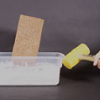
Earthquake Science: Soil Liquefaction
Source Institutions
This activity demonstrates liquefaction, the process by which some soils lose their solidity during an earthquake.
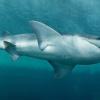
Shark Sizes
Source Institutions
In this graphing exercise (page 2 of the pdf), learners compare their own height to the length of various sharks.
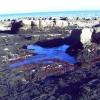
Tidepool in the Classroom
Source Institutions
In this activity (page 4 of the pdf), learners build a model of a tide pool, using chicken wire, paper mache, and other craft materials.

Fill 'er Up!
Source Institutions
Learners discover that their breath contains carbon dioxide, one of the pollutants found in car exhaust.

Plant Parts You Eat
Source Institutions
In this food science activity, learners observe different plant-originated foods.
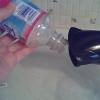
Air Pressure
Source Institutions
In this experiment, learners use a blow dryer and water bottle to observe and record changes in air pressure caused by changes in temperature.
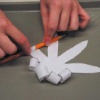
Moving On Up: Capillary Action II
Source Institutions
Learners explore capillary action in plants (such as plants ability to move water from roots to leaves) in an investigation called Paper Blooms.

Invent a Plant
Source Institutions
In this activity, learners construct models of plants that are adapted to living under specific environmental conditions.
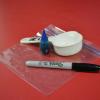
DIY Science: Water Cycle in a Bag!
Source Institutions
In this activity, learners will simulate the processes of the water cycle at home in a plastic sandwich bag.
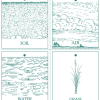
Habitat Web
Source Institutions
In this activity, learners explore the web of connections among living and non-living things.
Sock Garden
Source Institutions
In this activity (located in the middle of the page), learners start a garden by planting their socks!
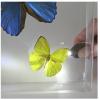
Exploring Structures: Butterfly
Source Institutions
In this activity, learners investigate how some butterfly wings get their color.
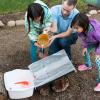
Runaway Runoff
Source Institutions
When it rains, water can collect on top of and seep into the ground. Water can also run downhill, carrying soil and pollution with it.

Trail Impact Study
Source Institutions
In this outdoor activity, learners plan a simple foot path and create an environmental impact study of the natural area where the path would be.
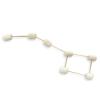
Marshmallow Constellations
Source Institutions
In this activity, learn about the cultural stories behind constellations. Then recreate your favorite constellations using marshmallows and toothpicks.
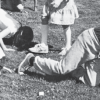
Follow the Scent
Source Institutions
In this outdoor, sensory activity, learners role play as animals trying to identify their "family's" scent and locate their "territory." Learners mark their territories and sniff out other territories
